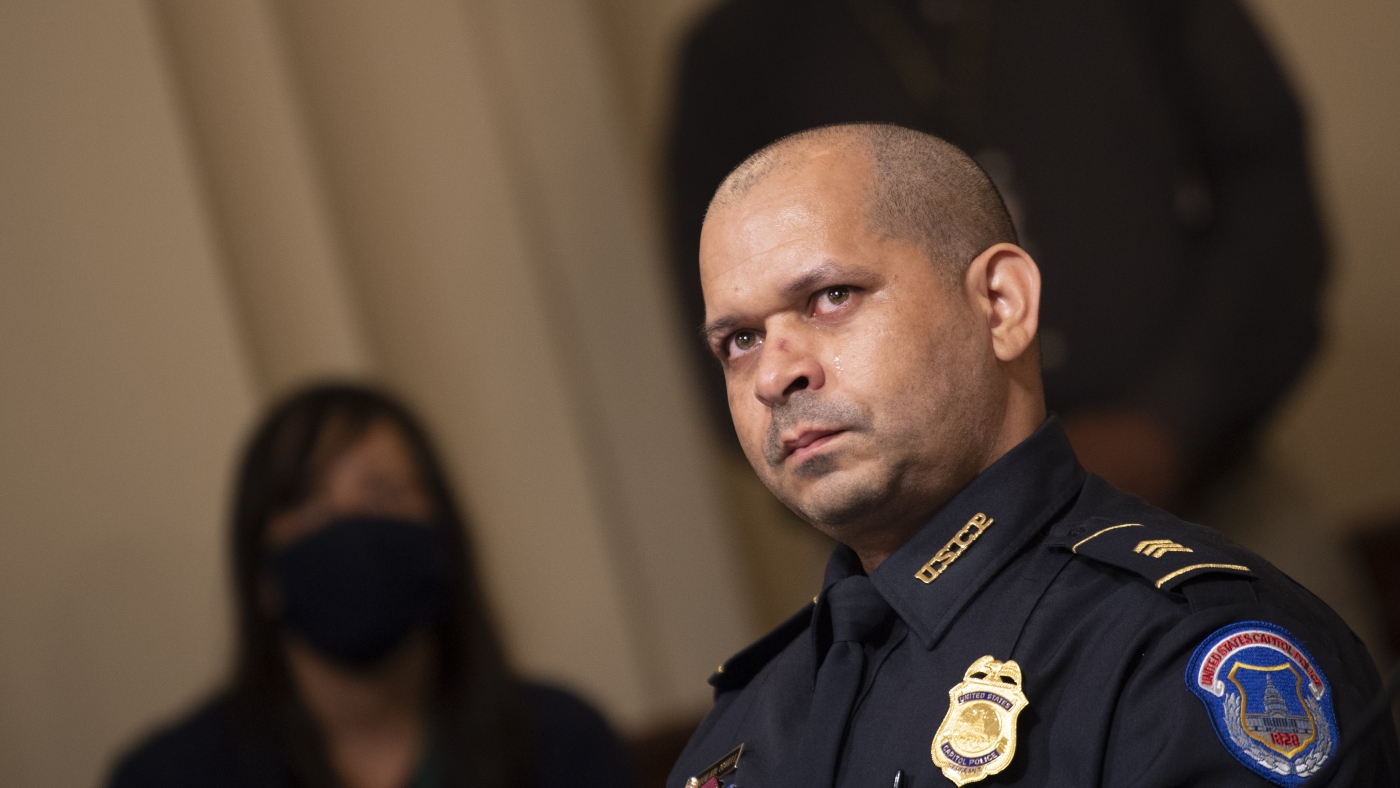Florida
7 Budget Vetoes That Prove Ron DeSantis Can Be a Real Prick

Gov. Ron DeSantis recently signed a $116.5 billion budget, but not before vetoing $511 million for mostly local projects.
The veto list is a drop in the bucket compared to past years—it’s less than half of the $1 billion-plus he vetoed in what he called the “veto equivalent of the Red Wedding” three years ago, and far below the $3.1 billion he excised last year.
Some of the vetoes were expected. Nobody expected DeSantis to let the “1619 Fest”—a Black History Month celebration in Orlando—snag $160,000 from the Free State of Florida.
But what the veto list lacked in quantity, DeSantis made up for in vindictiveness. Here are seven vetoes that prove the governor can be a prick.
1. Screwing the Farmers
The governor’s budget vetoes fell hard—for the second year in a row—on top priorities of GOP Agriculture Commissioner Wilton Simpson. DeSantis vetoed $100 million the state uses to pay farmers who agree to preserve their land from development, and he eliminated nearly $30 million for energy programs Simpson oversees.
Simpson, who has stayed neutral in the primary fight between DeSantis and former President Donald Trump, questioned DeSantis’ support for agriculture, a statement that could haunt the governor as he tries to pick up support in the crucial early nominating state of Iowa.
“There is no conceivable reason to target agriculture in a year when we have billions of dollars in reserves,” Simpson told Gary Fineout of Politico, who also endured large budget vetoes a year ago when he was still Senate president. “Agriculture was harmed today and so was the state of Florida.”
Photo Illustration by Elizabeth Brockway/The Daily Beast/Getty
2. Retaliating Over Not Getting an Endorsement
No community was named as frequently in Gov. DeSantis’ veto list as Sarasota. The region’s state senator, a close ally of former President Donald Trump, says that’s no accident.
Sen. Joe Gruters, Sarasota County’s longest-serving state lawmaker and the former Chair of the Florida GOP, didn’t mince words when asked why he thought the reliably Republican pocket of the Sunshine State was given the cold shoulder.
It was because he had an opinion—the wrong one, in DeSantis’ eyes—of who should be in the Oval Office come January 2025.
“The governor is clearly upset I endorsed Donald Trump for president, and so he took it out on the people of Sarasota County,” Gruters told the Sarasota Herald-Tribune. “Trump and I understand that people come first, and it’s our job to deliver clean water, jobs, and a better America for the next generation. The governor clearly sees politics differently.”
The projects axed by the governor include items addressing critical state needs. Florida’s health care leaders have warned the state will be short tens of thousands of nurses in the coming years, yet one of the largest single vetoes DeSantis made was a $20 million earmark for a STEM nursing facility at the University of South Florida’s Sarasota-Manatee campus.
Without a doubt, this was a cut made in the service of vengeance, not fiscal responsibility.
3. Gunned Down
The biggest “public safety” measure to get DeSantis’ approval this year wasn’t all that safe. Midway through the legislative session, he signed a bill that removes Florida’s current requirement for gun owners to obtain a concealed firearm license.
The permitless carry bill cruised through the legislature despite concerns from some lawmakers, mostly Democrats, who groused that the measure would make Florida more dangerous, which is a view held by the vast majority of Florida voters, including more than 60 percent of Republicans.
Their concerns either didn’t grab the governor’s attention or, more likely, he decided to rub salt in the wound by vetoing gun violence prevention funding.
St. Petersburg Democratic state Sen. Darryl Rouson’s funding request was the largest of its kind to get scratched out of the budget—he sought $5 million for groups combating gun violence at the community level.
“It makes sense to expand programs that are actually doing the work to prevent more gun violence,” Rouson said in a release, adding that the funding was needed especially due to the likely increase in gun violence once permitless carry goes into effect July 1.
But Rouson’s proposal wasn’t the only one to get the ax.
The governor also nixed two requests from GOP state Sen. Alexis Calatayud that would have provided a combined $3.9 million to the Miami-Dade County Community Violence Intervention Initiative, to provide emotional and mental health support, resources, and interventions in communities most impacted by violence, specifically gun violence.
It should be noted that Calatayud voted for the permitless carry bill, lauding the inclusion of $60 million into school safety programs and resources, but DeSantis apparently wasn’t impressed.

Photo Illustration by Elizabeth Brockway/The Daily Beast/Getty
4. Screw the Animals
Yes, DeSantis vetoed funding for an aquarium project at Brevard Zoo, but you can go ahead and credit GOP state Rep. Randy Fine with an assist.
The lawmaker revels in controversy and seemingly lives to dish out acerbic soundbites on culture war issues such as gender-affirming care. But like the resident of the governor’s mansion, he bristles at pushback from the targets of his barbs. Fine essentially took his rage out on an innocent bystander when he pushed the governor to veto the funding request.
Why the flip?
Brevard Zoo had the audacity to consider—simply consider—not allowing its property to be rented out for political events after a fundraiser held by Fine went sideways, drawing a crowd of protestors who railed against the state senate candidate’s stance on transgender issues.
Hopefully Brevard Zoo can collect enough liberal tears to fill a salt-water tank, because it didn’t take much convincing for the governor to capitulate to Fine’s petty request.
5. No Soup For You!
South Florida spent a good chunk of the legislative session underwater, and if it was unclear whether DeSantis cared about the emergency, it’s not anymore.
The governor slashed millions in funding requests that would have paid for emergency planning and infrastructure, which could have prevented South Florida residents from having to find a way to make galoshes and highwaters stylish.
Among the $3.14 million in South Florida flood control vetoes: $800,000 to improve Lauderhill Maple Run drainage; $600,000 for drainage to improve the area near the Dolphin Mall; $450,000 to rehab pump stations at the Old Plantation Water Control District; $340,200 to fix failed drainage systems on Southwest Ranches roads; $262,500 to repair deteriorating drainage culverts along the South Broward Drainage District’s (SBDD) C-1 Canal; a $200,000 flood mitigation project in Parkland; and $1.5 million that would have improved sanitary sewer overflows for the Glades Community.
Why all the vetoes? Perhaps because the South Florida lawmakers—most of them Democrats—who sponsored the requests also vocally criticized the governor for refusing to tour the damage.
South Florida wasn’t alone, either. DeSantis also slashed $1 million for a project to ease flooding in the historic Black community of Midway.

Photo Illustration by Elizabeth Brockway/The Daily Beast/Getty
6. All Things Not Considered
In another move that thwarts public safety, DeSantis nixed more than $6.4 million that the legislature approved in the budget for various projects at public and community radio and broadcast stations throughout the state.
The tranche of items slashed from the budget were aimed at correcting health and safety issues or building deficiencies or to complete renovations at public broadcasting stations.
Most of these stations are, at least in part, listener-funded, and most carry National Public Radio (NPR) content. It’s no secret that many people view NPR, and public radio writ large, as a liberal mouthpiece. NPR’s own research shows about 26 percent of its listenership identifies as conservative or somewhat conservative, while about 37 percent identify as liberal or somewhat liberal. And efforts to defund NPR among conservatives is nothing new.
Other stations that fell victim to vetoes carry PBS content, which the media bias rating group All Sides ranks as “lean[ing] left” and which often faces similar criticism from conservatives as NPR.
But DeSantis’ red pen means these stations, most strapped for cash in a harsh media environment, won’t be getting needed safety features.
That includes nearly $400,000 axed from WUSF in Tampa for replacement of an obsolete electrical system; more than $475,000 for WMNF Community Radio in Tampa to replace a generator and fuel tank; nearly $350,000 for WEDU-TV in Tampa to replace mildewed ceiling tiles; more than $100,000 for WFSU in Tallahassee for emergency equipment and a new FAA-compliant tower; more than $800,000 for WJCT in Jacksonville for restroom renovation and damaged floor replacement; and so much more.
While, individually, the vetoes may not seem like much, collectively it looks more like DeSantis has an ax to grind with what he likely perceives as the liberal media out to tank his governorship and presidential ambitions.
7. The Unkindest Cut of All
Moffitt Cancer Center won’t be getting a road to its Life Sciences campus in Pasco County after DeSantis vetoed a $5 million line item to fund a connector road.
It’s a weird veto considering DeSantis’ wife, Casey DeSantis, survived breast cancer thanks to treatment she received…at Moffitt Cancer Center.
It would seem like, out of gratitude for his wife’s renewed health, he’d let the $5 million, which the legislature already approved, slide without taking the time to nix it.
That’s especially true considering the $5 million is a fraction of what has ultimately been sought for Moffitt recently. Last year, DeSantis vetoed a priority package put forth by then-state Senate President Wilton Simpson for $600 million for the Pasco Moffitt campus. And the $5 million in this year’s budget was far less than the $25 million Rep. Randy Maggard had requested.
What kind of guy snubs the place that may very well have saved his wife’s life?
Governor Prick, that’s who.

Florida
President Biden bans future oil and natural gas drilling off Florida’s coast

It is not yet known what effect this will have on the state’s decision to allow a permit for an exploratory oil well along the Apalachicola River.
President Biden on Monday banned future oil and natural gas drilling and leasing off of Florida’s coasts.
His executive actions add 334 million acres of the Atlantic coast from Canada to the southern tip of Florida and the east coast of the Gulf of Mexico for a total of over 625 million acres of protected waters surrounding the United States.
While there are no active leases off the Atlantic coast, Florida’s beaches on the east coast of the Gulf of Mexico have previously been impacted by oil spills from drilling in the gulf, most notably from BP’s Deepwater Horizon oil drilling rig in 2010.
“President Biden has determined that the environmental and economic risks and harms that would result from drilling in these areas outweigh their limited fossil fuel resource potential,” the White House’s press release says.
“With these withdrawals, President Biden is protecting coastal communities, marine ecosystems, and local economies – including fishing, recreation, and tourism – from oil spills and other impacts of offshore drilling.”
It’s not clear, however, what effect this will have on the Florida Department of Environmental Protection’s decision to allow a permit for an exploratory oil well along the Apalachicola River, which has been heavily criticized by drilling opponents and lawmakers.
It’s also not clear if the ban will have staying power. Trump is vowing to “unban it immediately.”
A spokesperson for the Trump administration said Biden’s move was “disgraceful” and was “designed to exact political revenge on the American people who gave President Trump a mandate to increase drilling and lower gas prices.”
“Rest assured, Joe Biden will fail, and we will drill, baby, drill,” wrote Trump spokesperson Karoline Leavitt in a post on X.
The ban also includes the Pacific off the coasts of Washington, Oregon and California, and additional portions of the Northern Bering Sea in Alaska.
In Florida, the Apalachicola River is considered to be one of the least polluted, least developed and resource-rich bodies of water in the United States, according to the United Nations Educational, Scientific, and Cultural Organization (UNESCO).
Critics of the state’s plan to allow exploratory drilling want Gov. Ron DeSantis to block Clearwater Land & Minerals from drilling through a lime rock pad north of Dead Lakes in Calhoun County.
Democratic state Reps. Allison Tant and Gallop Franklin, and Republican state Sen. Corey Simon had harsh words for the proposal when it came to light last year.
“It is unconscionable that efforts to drill for oil are happening at the same time that we are fighting for the revitalization of the Apalachicola Bay,” Simon said in a statement released by the Florida Senate.
Requests for comment from DeSantis’ office and U.S. Sen. Rick Scott were pending as of midday Monday.
Ana Goñi-Lessan is the State Watchdog Reporter for USA TODAY – Florida and can be reached at AGoniLessan@tallahassee.com.
Florida
1850s plant info unearthed, helping Florida scientists untangle climate change

An email from the Smithsonian Institution popped up in Theresa Crimmins’ inbox over a December break about two years ago.
Crimmins was researching phenology — the study of how plants and animals respond to seasonal changes — for a book chapter she was writing, and had requested whatever information the institution could find.
To the average person, the document the Smithsonian had unearthed would have been unremarkable.
It is a nearly 600-page, 19th-century report containing a dizzying amount of entries spanning from 1851 to 1859.
This data was highly unusual in its detail. Most records like it are generic and only cover small regions. This one contained thousands of entries spanning over 200 species across North America, including exact blooming dates, when fruit ripened and when different animals migrated into an area.
Crimmins, the director of the USA National Phenological Network, reached out to colleagues across the country to see if they knew about it.
It was unlike any document they’d seen before. And it apparently had never been utilized.
Comparing the entries to data from today could draw an unprecedented picture of how climate change has affected when plants bloom over the last century and a half.
So Crimmins teamed with Robert Guralnick, curator of biodiversity informatics at the Florida Museum of Natural History in Gainesville, and researchers from the University of Florida to do just that. They released a study in October with their findings.
What they found was a vastly different natural world caused by climate change — one where some species today bloom nearly a month earlier than they did in the 1850s.
When the timing of species that rely on each other shift around, it can create an unsteady ripple through ecosystems — causing a myriad of unforeseen consequences like less pollination or food scarcity.
“I think what this is helping us understand is that we are very much in a period of active change,” Crimmins said, “and really things are drifting earlier.”
How century old data is informing the future
The Smithsonian Institution in the 1850s recruited hundreds of citizen scientists across the nation to track when they saw plants bud or grow leaves.
At the time, Florida had been a state for only six years.
The first Florida entry was for “Alligator,” a city that would later be renamed Lake City in Columbia County. Edward Ives recorded the first leaves growing on a “Red or Soft Maple.”
Another contributor from “Cedar Keys” in Levy County was named Augustus Steele.
Steele is likely the same man who helped found Hillsborough County years prior, according to a Tampa Tribune article.
Vital as the data would turn out to be, the document went unpublished for years because of printing scarcity during the American Civil War.
In 2023, Crimmins was tasked with contributing a chapter for a third edition of a book on phenology. The book’s previous edition briefly mentioned a phenological data collection network in the 1850s, but it was merely a footnote.
It was an opportunity, Crimmins said, to dig deeper. Still, she was floored when she received the full document from the Smithsonian and saw its extraordinary detail.
“I was like ‘Oh my gosh, that’s cool,‘” Crimmins said. “When you have actual direct observations like that, you can directly compare them to the same species and the same events in the present day.”
The project mirrors the work of the USA National Phenological Network. The group, created in 2007, uses a formal tracking program that collects and monitors plant cycles with the help of citizen scientists across the country.
A formula for the future
Scientists don’t know precisely how climate change influences plant cycles.
Researchers know plants are sensitive to cues, like temperatures, but why flowering and leafing varies across species remains a mystery.
As the planet warms from human-caused climate change, these cycles are further muddied.
Guralnick and other colleagues from the University of Florida, including a small group of student interns, spent weeks scraping data from the 19th-century document.
Beyond comparing dates of blooming, they wanted to create a better framework to predict how species respond to climate change.
The October study outlines a revamped formula for predicting when plants will grow buds or leaves by adding an extra variable to how phenological predictions are typically made.
They found that with the added variable, their predictions more accurately aligned with how climate change has affected nature over the past century and a half.
With climate change, not all species are changing in the same way, or in the same direction, Crimmins said.
The northeastern part of the country is warming faster than the southeast, for example.
While the October study does not use Florida records (researchers used data as far south as around Georgia), there are some takeaways for the state.
Guralnick said species in the southeast are more sensitive to phenological cues, like temperature or rainfall changes.
Had warming in the south occurred at the same rate as the north, southerly plant cycles would be more affected.
“I think it’s neat,” Guralnick said. “It talks about these different layers, and so now we can predict if more warming happens here over time, we would see stronger phenological responses to that warming.”
When a plant blooms earlier than expected, that’s where mismatches among species that depend on each other can happen, Crimmins said.
If a plant buds before a pollinator arrives, the plant may not be able to reproduce as widely, and it could cause the pollinator’s population to decline.
Crimmins said the phenology network is a way to show how the natural world is changing and document it.
“There’s a lot people can do just with the data coming … but when we can also put into the context of what was happening a hundred or more years ago, with this particular data set, it’s even more powerful,” Crimmins said.
“It helps us to tell an even more robust story of how things have changed.”
Florida
Brandon Butler: Florida a great escape for outdoor enthusiasts

-

 Health1 week ago
Health1 week agoNew Year life lessons from country star: 'Never forget where you came from'
-
/cdn.vox-cdn.com/uploads/chorus_asset/file/24982514/Quest_3_dock.jpg)
/cdn.vox-cdn.com/uploads/chorus_asset/file/24982514/Quest_3_dock.jpg) Technology1 week ago
Technology1 week agoMeta’s ‘software update issue’ has been breaking Quest headsets for weeks
-

 Business5 days ago
Business5 days agoThese are the top 7 issues facing the struggling restaurant industry in 2025
-

 Culture5 days ago
Culture5 days agoThe 25 worst losses in college football history, including Baylor’s 2024 entry at Colorado
-

 Sports5 days ago
Sports5 days agoThe top out-of-contract players available as free transfers: Kimmich, De Bruyne, Van Dijk…
-

 Politics4 days ago
Politics4 days agoNew Orleans attacker had 'remote detonator' for explosives in French Quarter, Biden says
-

 Politics3 days ago
Politics3 days agoCarter's judicial picks reshaped the federal bench across the country
-

 Politics2 days ago
Politics2 days agoWho Are the Recipients of the Presidential Medal of Freedom?


















